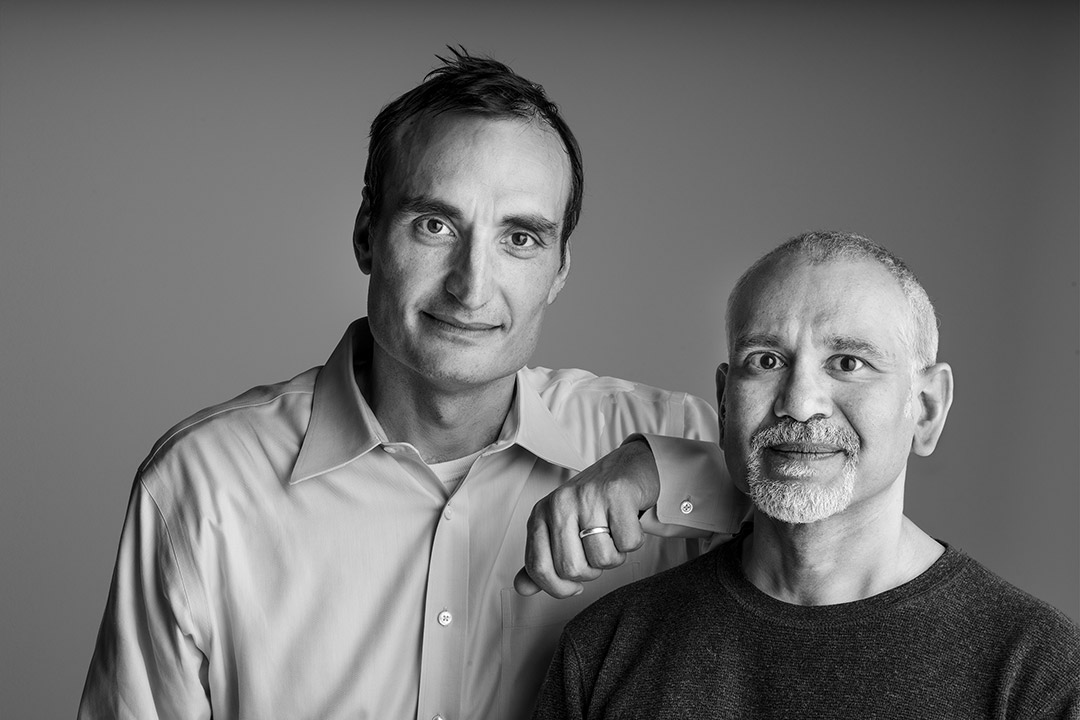Exploring the deadly connection between Parkinson’s disease, weed killer, and misinformation
Amit Ray and Ray Dorsey explain how companies employ misinformation campaigns at the expense of the consumer
Scott Hamilton
Ray Dorsey, left, and Amit Ray, right, combine their individual expertise to highlight the link between misinformation and corporate profit.
A current class action lawsuit brought forward by patients with Parkinson’s disease calls into question whether information from manufacturers about the usage and safety of paraquat, a chemical herbicide, was deliberately misleading consumers.
Amit Ray, associate professor at Rochester Institute of Technology, and Ray Dorsey, professor of neurology at the University of Rochester and author of Ending Parkinson’s Disease, published an article earlier this year that explores this issue and connects it with the sociological concept agnotology.
Agnotology, coined by linguist Iain Boal in 1992, is defined as the deliberate production of ignorance, often for commercial gain. In their article, Ray and Dorsey allege that the facts outlined in the current paraquat lawsuit present a contemporary case of agnotology in action.
“The study of agnotology highlights this idea that ignorance can be a culturally constructed phenomena. That it doesn’t just happen, but rather it can be very willfully introduced into populations,” said Ray. “A lot of hands can be involved in making sure that certain information— information that might be contra to the interests of a company making herbicides, in this case— doesn’t leave the control of those corporations.”
Paraquat dichloride, the chemical compound in question, has been used as an herbicide since the 1950s. Many countries across the globe have banned its use, but it is still available as a restricted chemical in the United States.
According to The Guardian, the lawsuit plaintiffs—which include thousands of farmers from across the country who have been diagnosed with Parkinson’s disease—claim scientific studies have shown that exposure to paraquat can cause, or significantly increase the risk of, Parkinson’s disease. But, rather than warn users, the companies involved prioritized paraquat sales over human health.
“The connection between agnotology and public health has roots going back for years. One of the most famous instances was tobacco manufacturers concealing the risks of smoking. It also pops up when talking about acid rain, the ozone hole, air pollution, climate change, and more,” said Dorsey. “With paraquat, the company knows the chemical is dangerous, knows it’s linked to Parkinson’s disease, and has known this for over 50 years. It doesn’t seek to modify or withdraw it, and instead doubles down and seeks to increase its sales.”
Ray explains that, unfortunately, the current lawsuit is not the only contemporary case of agnotology in action. Raising awareness of the prevalence of agnotology, and what it can look like, was one of the motivating factors for writing their article.
“If one company is doing this, there are all kinds of other areas where this can extend to. From pharmaceuticals, to the food industry, to algorithms; you can find this all over the place. The companies are emboldened by their successes, and they often hire the same kinds of PR groups to do this work for them,” said Ray.
Another motivating factor was to aide in the quest for accountability from the manufacturers producing this harmful weed killer.
“I used to think the water we drink, the air we breathe, and the food we eat were safe. Now, I no longer believe that,” said Dorsey. “We cannot let these individuals and these corporations act like this and get away with it. We should demand accountability from those around us, especially when they act wrongly—repeatedly and knowingly—for monetary gain at the risk of other people’s health.”
For those looking to learn more about the lawsuit, several news outlets, including The Guardian, are sharing periodic updates on the case. To learn more about the connection between paraquat, Parkinson’s disease, and agnotology, read the research article for free online.












